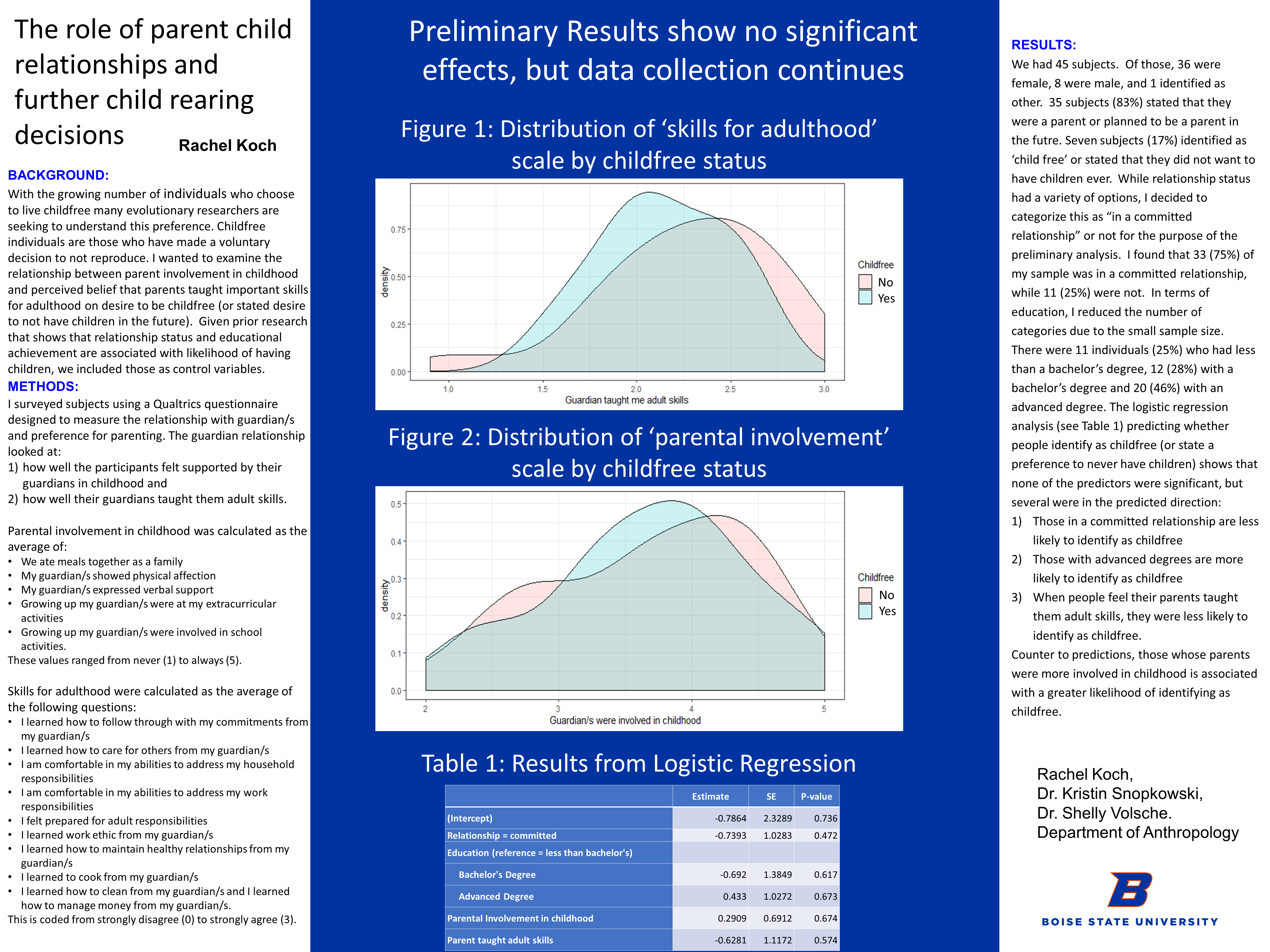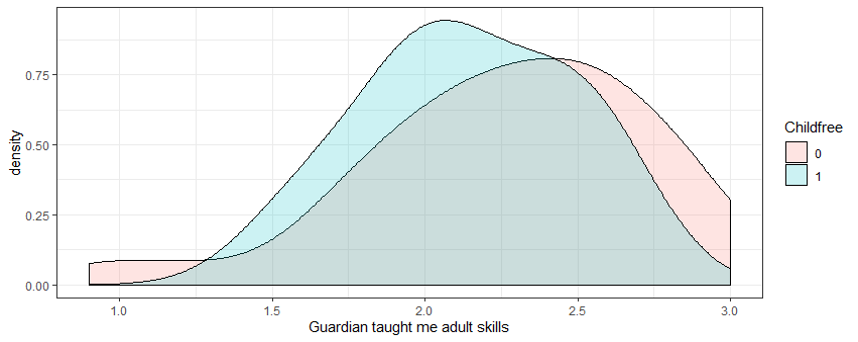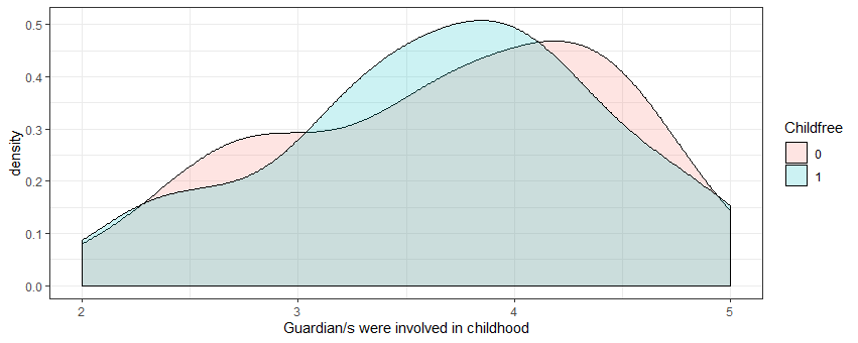Rachel N. Koch, Dr. Kristin Snopkowski, Dr. Shelly Volsche

Preliminary Results show no significant effects, but data collection continues


Table 1: Results from Logistic Regression
| Category | Estimate | SE | P-value |
|---|---|---|---|
| (Intercept) | -0.7864 | 2.3289 | 0.736 |
| Relationship = committed | -0.7393 | 1.0283 | 0.472 |
| Education (reference = less than bachelor’s) | |||
| Bachelor’s Degree | -0.692 | 1.3849 | 0.617 |
| Advanced Degree | 0.433 | 1.0272 | 0.673 |
| Parental Involvement in childhood | 0.2909 | 0.6912 | 0.674 |
| Parent taught adult skills | -0.6281 | 1.1172 | 0.574 |
Background:
With the growing number of individuals who choose to live childfree many evolutionary researchers are seeking to understand this preference. Childfree individuals are those who have made a voluntary decision to not reproduce. I wanted to examine the relationship between parent involvement in childhood and perceived belief that parents taught important skills for adulthood on desire to be childfree (or stated desire to not have children in the future). Given prior research that shows that relationship status and educational achievement are associated with likelihood of having children, we included those as control variables.
Methods:
I surveyed subjects using a Qualtrics questionnaire designed to measure the relationship with guardian/s and preference for parenting. The guardian relationship looked at:
- how well the participants felt supported by their guardians in childhood and
- how well their guardians taught them adult skills.
Parental Involvement
Parental involvement in childhood was calculated as the average of:
- We ate meals together as a family
- My guardian/s showed physical affection
- My guardian/s expressed verbal support
- Growing up my guardian/s were at my extracurricular activities
- Growing up my guardian/s were involved in school activities.
These values ranged from never (1) to always (5).
Skills
Skills for adulthood were calculated as the average of the following questions:
- I learned how to follow through with my commitments from my guardian/s
- I learned how to care for others from my guardian/s
- I am comfortable in my abilities to address my household responsibilities
- I am comfortable in my abilities to address my work responsibilities
- I felt prepared for adult responsibilities
- I learned work ethic from my guardian/s
- I learned how to maintain healthy relationships from my guardian/s
- I learned to cook from my guardian/s
- I learned how to clean from my guardian/s and I learned how to manage money from my guardian/s.
This is coded from strongly disagree (0) to strongly agree (3).
Results:
We had 45 subjects. Of those, 36 were female, 8 were male, and 1 identified as other. 35 subjects (83%) stated that they were a parent or planned to be a parent in the futre. Seven subjects (17%) identified as ‘child free’ or stated that they did not want to have children ever. While relationship status had a variety of options, I decided to categorize this as “in a committed relationship” or not for the purpose of the preliminary analysis. I found that 33 (75%) of my sample was in a committed relationship, while 11 (25%) were not. In terms of education, I reduced the number of categories due to the small sample size. There were 11 individuals (25%) who had less than a bachelor’s degree, 12 (28%) with a bachelor’s degree and 20 (46%) with an advanced degree. The logistic regression analysis (see Table 1) predicting whether people identify as childfree (or state a preference to never have children) shows that none of the predictors were significant, but several were in the predicted direction:
- Those in a committed relationship are less likely to identify as childfree
- Those with advanced degrees are more likely to identify as childfree
- When people feel their parents taught them adult skills, they were less likely to identify as childfree.
Counter to predictions, those whose parents were more involved in childhood is associated with a greater likelihood of identifying as childfree.
Additional Information
For questions or comments about this research, contact Rachel Koch at rachelkoch@u.boisestate.edu.